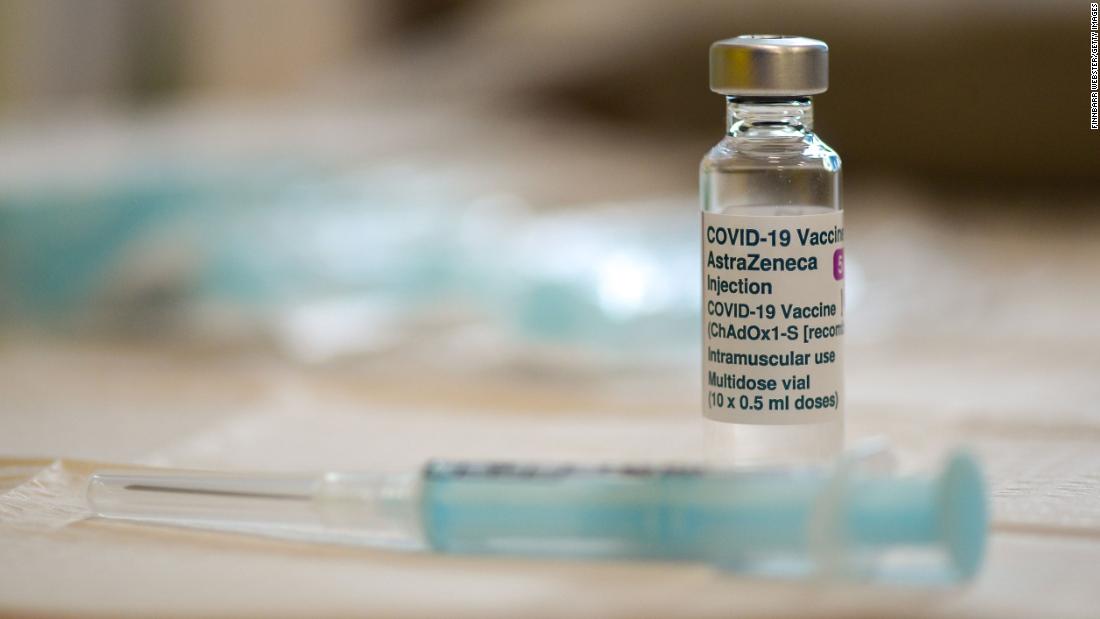“The DSMB expressed concern that AstraZeneca may have included outdated information from that study, which may have provided an incomplete view of the efficacy data,” said the NIAID statement released on Tuesday.
“We urge the company to work with the DSMB to review effectiveness data and ensure that the most accurate and up-to-date effectiveness data is made public as soon as possible.”
I
in the statement on Tuesday, AstraZeneca said the figures shared on Monday were based on a pre-specified interim analysis with a February 17 data cut.
“We will immediately contact the independent data security monitoring board (DSMB) to share our primary analysis with the most up-to-date efficacy data,” said the statement. “We intend to issue the results of the primary analysis within 48 hours.”
Last year, the National Institutes of Health appointed a joint DSMB to monitor the Covid-19 vaccine clinical trials that were being funded by the federal government – including AstraZeneca, Moderna and Johnson & Johnson. This DSMB has 10 to 15 members with specialties, including vaccine development, statistics and ethics.
Fauci said on Good Morning America on Tuesday that when the DSMB saw the AstraZeneca press release, “they were concerned and wrote a rather rough note for them – and a copy for me – saying that they actually felt that the data that was in the press release was a bit outdated and may actually be a little bit misleading, and they wanted them to fix that. “
‘Unforced error’ may raise doubts about vaccine
AstraZeneca’s press release was “an unforced error” that may raise doubts about what “is most likely a very good vaccine,” said Fauci. The data is “really very good, but when it was published in the press release, it was not entirely accurate”.
The fact that the DSMB noticed the discrepancy was an example of a safeguard against vaccines, said Fauci.
But, having seen the letter from the monitoring committee, “we couldn’t just leave it unanswered.”
Still, a public statement questioning AstraZeneca’s data is unusual.
DSMBs sometimes disagree with researchers about the interpretation of the study results, said Stephen Evans, professor of pharmacoepidemiology at the London School of Hygiene & Tropical Medicine, in a statement to the UK’s Science Media Center. But this is usually done privately, he said, “so this is unprecedented in my opinion.”
Dr Peter Hotez, a vaccine specialist and dean of tropical medicine at Baylor medical school, told CNN that the NIAID statement was “totally strange”.
“I can barely understand the dispute or why they would make it so public,” said Hotez. “My concern is that this will further erode public confidence in the AZOX vaccine, especially for low- and middle-income countries. And we don’t have many options for Africa and Latin America at this time.”
T
This is not the first time that AstraZeneca faces doubts about its Covid-19 vaccine. In November, it was revealed that there was an error in the trial and some participants received the wrong dose.
More recently, several European countries, including Norway, France and Denmark, have temporarily suspended their launches of the AstraZeneca vaccine due to reports of blood clotting in patients.
An emergency investigation by the European Medicines Agency found that the vaccine’s benefits outweigh the risks, saying the vaccine is “safe and effective” in preventing coronavirus and “is not associated with an increased overall risk of thromboembolic events or blood clots . “
There is no indication that the DSMB concerns noted in the NIAID statement were related to safety problems with the AstraZeneca vaccine.
US order expected in April
On Tuesday, the White House senior consultant to Covid’s response, Andy Slavitt, tried to assure the public that any authorized vaccine will be safe and effective.
“We are now talking about a fourth vaccine that has not yet been approved by the FDA. And the reason we have an FDA process is exactly so that we don’t have to question the data. We don’t need to take a company’s word for it, with all respect for companies, “said Slavitt during an interview with CNN on Tuesday.
“The public must be sure that nothing will be approved unless the FDA does a thorough analysis of that data and, when it does that thorough analysis, it will make a judgment about what the data says, or what it is saying, and also whether or will not be approved. “
Naomi Thomas, Nadia Kounang, Jo Shelley and Jason Hoffman contributed to this report.
